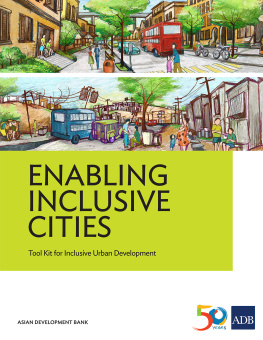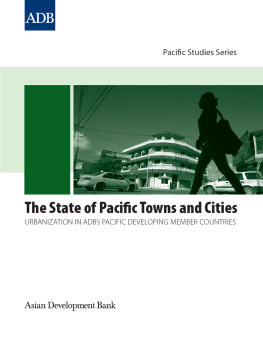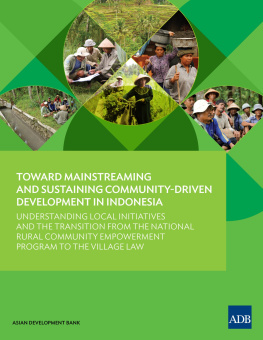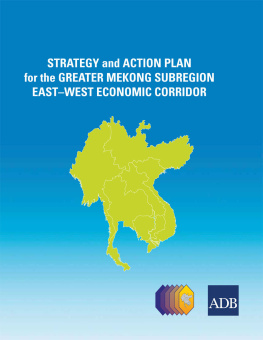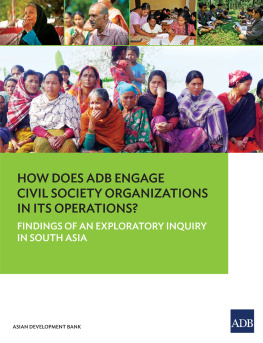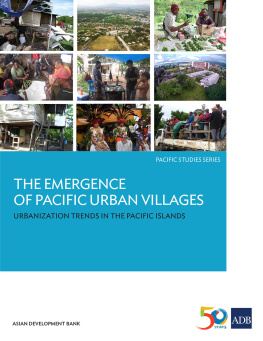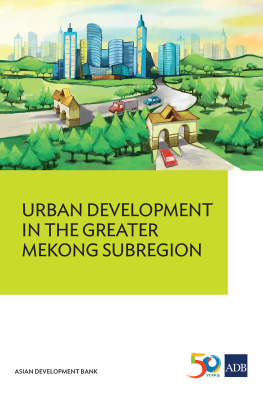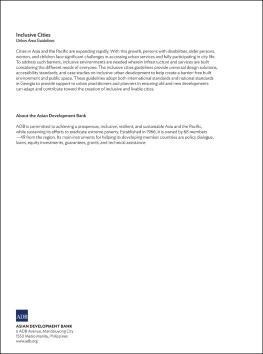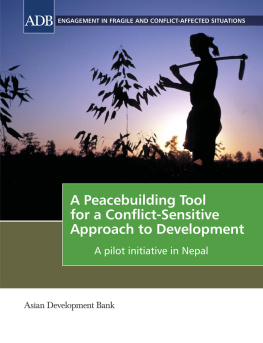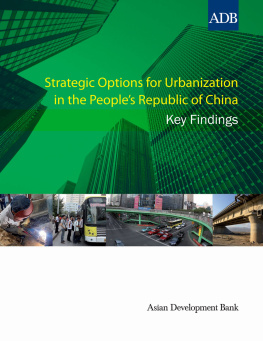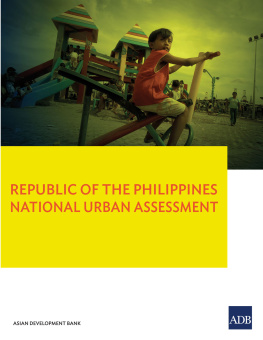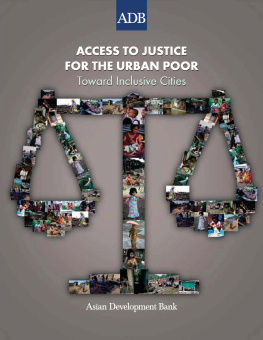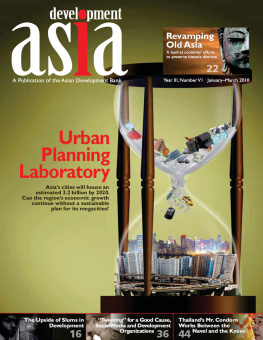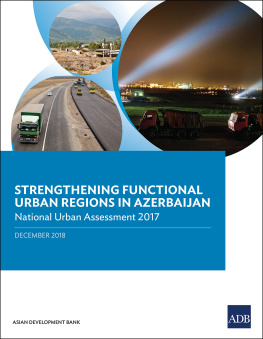Asian Development Bank - Enabling Inclusive Cities: Tool Kit for Inclusive Urban Development
Here you can read online Asian Development Bank - Enabling Inclusive Cities: Tool Kit for Inclusive Urban Development full text of the book (entire story) in english for free. Download pdf and epub, get meaning, cover and reviews about this ebook. year: 2017, publisher: Asian Development Bank, genre: Business. Description of the work, (preface) as well as reviews are available. Best literature library LitArk.com created for fans of good reading and offers a wide selection of genres:
Romance novel
Science fiction
Adventure
Detective
Science
History
Home and family
Prose
Art
Politics
Computer
Non-fiction
Religion
Business
Children
Humor
Choose a favorite category and find really read worthwhile books. Enjoy immersion in the world of imagination, feel the emotions of the characters or learn something new for yourself, make an fascinating discovery.
- Book:Enabling Inclusive Cities: Tool Kit for Inclusive Urban Development
- Author:
- Publisher:Asian Development Bank
- Genre:
- Year:2017
- Rating:3 / 5
- Favourites:Add to favourites
- Your mark:
- 60
- 1
- 2
- 3
- 4
- 5
Enabling Inclusive Cities: Tool Kit for Inclusive Urban Development: summary, description and annotation
We offer to read an annotation, description, summary or preface (depends on what the author of the book "Enabling Inclusive Cities: Tool Kit for Inclusive Urban Development" wrote himself). If you haven't found the necessary information about the book — write in the comments, we will try to find it.
Enabling Inclusive Cities: Tool Kit for Inclusive Urban Development — read online for free the complete book (whole text) full work
Below is the text of the book, divided by pages. System saving the place of the last page read, allows you to conveniently read the book "Enabling Inclusive Cities: Tool Kit for Inclusive Urban Development" online for free, without having to search again every time where you left off. Put a bookmark, and you can go to the page where you finished reading at any time.
Font size:
Interval:
Bookmark:


 Creative Commons Attribution 3.0 IGO license (CC BY 3.0 IGO)
Creative Commons Attribution 3.0 IGO license (CC BY 3.0 IGO)Mandaluyong City, Philippines: Asian Development Bank, 2017.
| Foreword |
| Acknowledgments |
| About the Authors |
| Abbreviations |
| Executive Summary |
| Purpose of This Tool Kit |
| Who Is This Tool Kit For? |
| What Does This Tool Kit Contain? |
| How to Use This Tool Kit |
| 1Inclusive Urban Development Framework |
| 1.1Enabling Inclusive Development |
| 1.2Creating Resilient Environments |
| 1.3Developing an Integrated Approach for Inclusive Urban Development |
| 1.3.1What Does Inclusive Mean? |
| 1.3.2Inclusive Urban Redevelopment |
| 1.3.3Framework for Inclusive Cities |
| 1.4Inclusive Urban Assessment Process |
| 1.4.1Phase 1: Urban Context |
| 1.4.2Phase 2: Sector Assessments and Options |
| 1.4.3Phase 3: Cross-Sectoral Prioritization and Project Programming |
| 1.4.4Undertaking Inclusive Urban Development Projects |
| 2Toolbox |
| 2.1Inventory of Tools |
| Bibliography |
| Annexes |
| 1Urban Indicators and Data |
| 2Information on Other Tool Kits for Inclusive Urban Assessments |
| 3Process Flowchart: Policy and Planning and Sectoral Components |
| Figures |
| 1Dimensions of Urban Poverty |
| 2Critical Aspects of Inclusive Urban Development |
| 3Inclusive Urban Development Approach |
| 4Framework for Understanding the Urban Context |
| 5Sector Assessments and Options |
| 6Approach to Cross-Sectoral Prioritization and Project Programming |
| Boxes |
| 1What Is an Inclusive City? |
| 2Amar JyotiAn Inclusive School |
| 3Urban Renewal in India |
Font size:
Interval:
Bookmark:
Similar books «Enabling Inclusive Cities: Tool Kit for Inclusive Urban Development»
Look at similar books to Enabling Inclusive Cities: Tool Kit for Inclusive Urban Development. We have selected literature similar in name and meaning in the hope of providing readers with more options to find new, interesting, not yet read works.
Discussion, reviews of the book Enabling Inclusive Cities: Tool Kit for Inclusive Urban Development and just readers' own opinions. Leave your comments, write what you think about the work, its meaning or the main characters. Specify what exactly you liked and what you didn't like, and why you think so.

